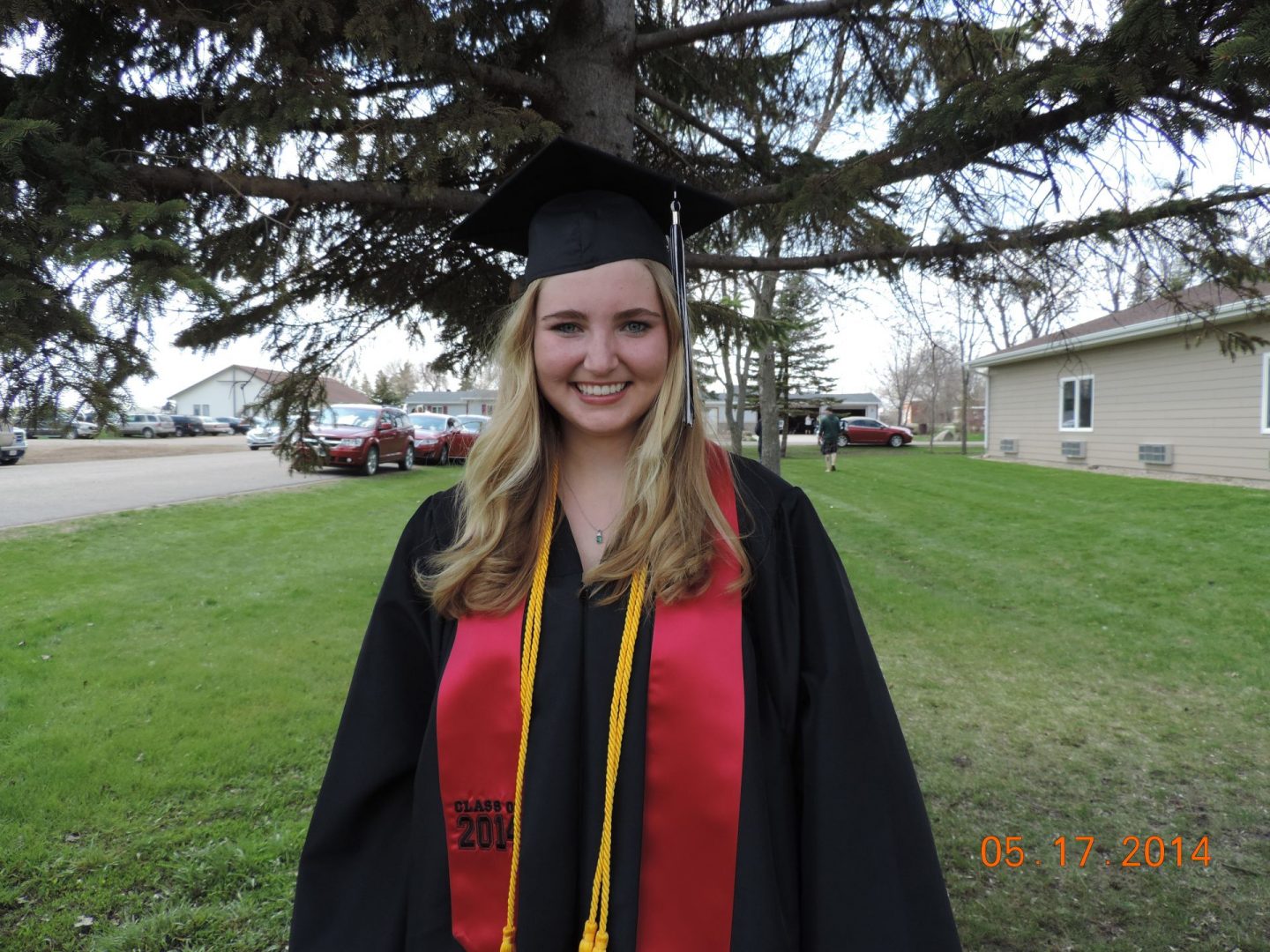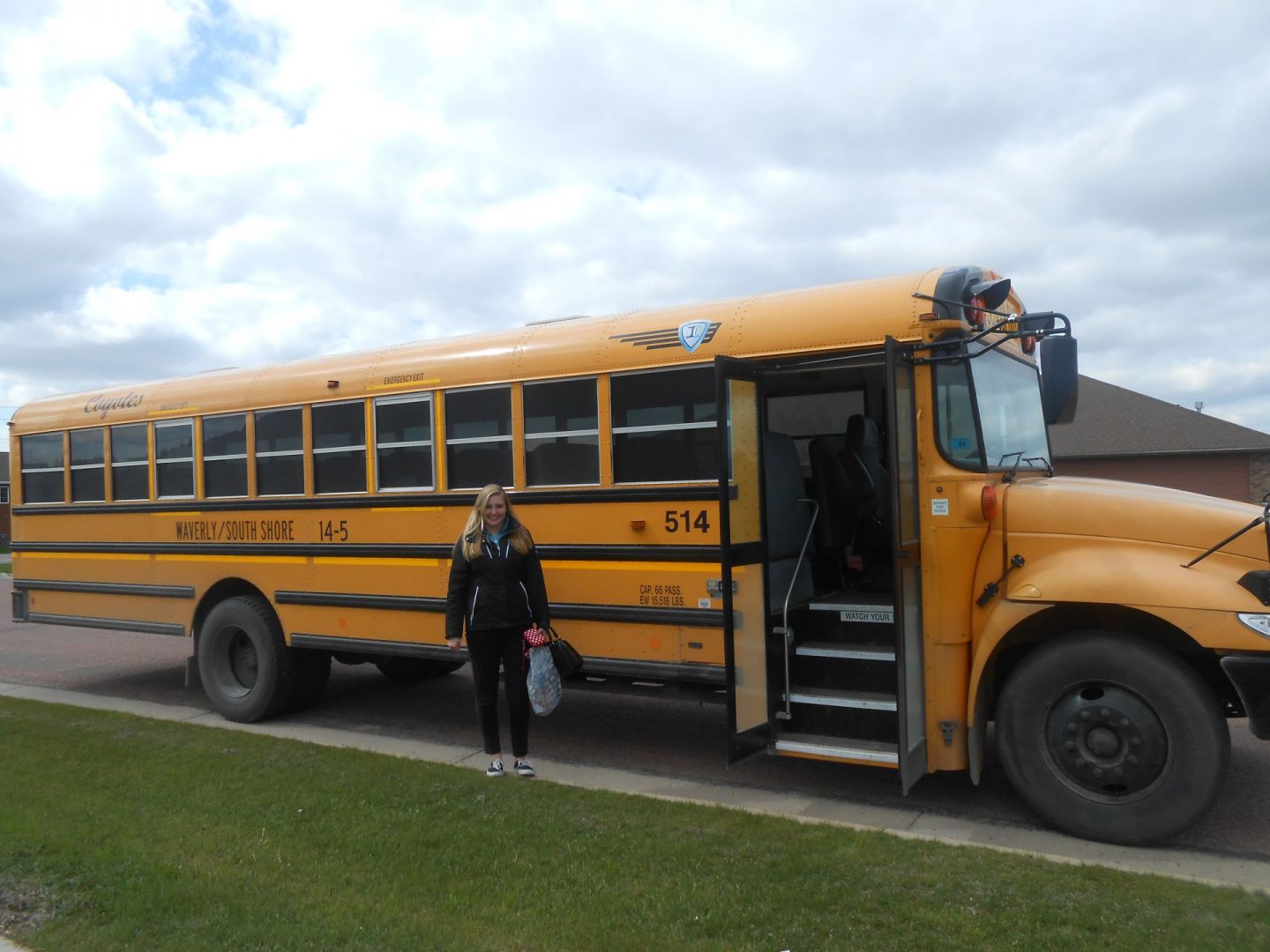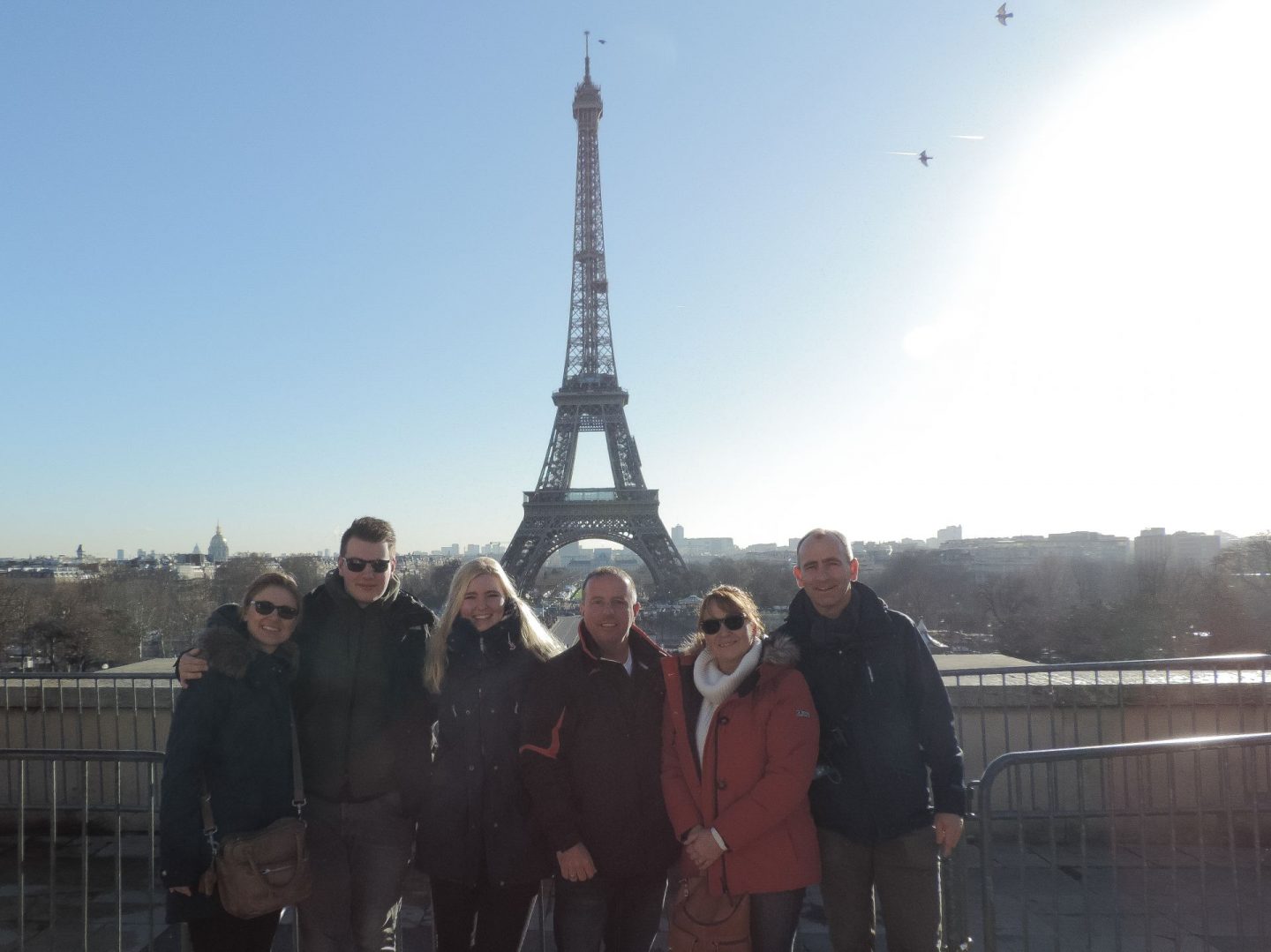
”My high school year in the United States wasn’t exactly what I expected.” When I tell people about my experience in America, I get a lot of surprised reactions. An exchange year should be amazing and doesn’t it have an positive impact on the rest of your life? Yes, my high school year ended up having a good influence on my life, but there are definitely a few things that I wish I had known before. Maybe I would have made different choices.
1. The screening of host families is not 100% reliable
To graduate journalism school, I researched the screening of hostfamilies in the United States for four months. (You can read my full research/article on this page.) Based on my research I can safely say: the screening of host families in the United States is not 100% reliable. I talked to students with traumatic experiences concerning their host families and in most cases the organizations didn’t do anything for them. CSFES has years of experience in supporting exchange students and they have seen many situations of students being placed with convicted criminals or (sexual) abusers. Earlier this year (2020) an EF representative was arrested for the abuse of three minor students from Europe. So yes, the screening definitely isn’t 100% reliable and it happens quite often that students end up in total unfit families.
2. Most local representatives receive a bonus when he/she places a student in a host family
While host families host a student for free (although their might be some under the table deals), regional and local coordinators from organizations are paid (there are only a handful of organizations that don’t do this). The coordinators are the contact points for the exchange student when he/she is in the United States and does the screening of the host families. (It happens quite often that the coordinator is a familymember/friend/acquaintance of the family. This could be complicated for the student when he/she struggles and wants to have a conversation about it with the coordinator.) Local and regional coordinators receicve a bonus op to $1000 per student and somtimes travel benefits as well (free trips to Europe). This bonus could have a big influence on the screening of families. The more students are placed in families, the more money the local- and regional coordinator make.

3. Not every American high school is as big as the ones in the movies, sometimes an entire class only counts 8 students
(Almost) every exchange student that decides to go to an American high school, has a specific imagine from the American schools. In general, this image is based on movies and series. Of course, the majority of the students understands that part of it is the Hollywood version, but there must be some kind of truth in there, right? I expected a big school, with a lot of after school activities and the American high school spirit. (Tons of cheerleaders, everybody wearing school merch and a big happening on game days.) I ended up going to a school with less than 200 students between the ages of 4 and 18 years old. My senior class counted 18 students and the juniors had a class of 11. So yeah, my high school imagine did not match with my reality and during my exchange I sometimes felt bad about that.
4. The smaller the high school, the bigger the changes for exchange students to join in on activities
When I was an exchange student, I sometimes felt disappointed about the fact that I had been placed at such a small school. I felt like my experience was less than the experiences of other students and felt like it wasn’t the ‘real America.’ Afterwards I realized that I had a unique experience and definitely lived the ‘real American life.’ Because of the small school, I had way more opportunities than I would have had in a big school. I was able to join in on every activity that I wanted, I knew all the high school students by name and because I was the only exchange student, I had no other choice than hanging out with the Americans. (This was excactly what I wanted, but it happens quite often that exchange students only hang out with other foreign students. For me, this wasn’t the case at all). I was able to join in on all the activities that I wanted to try and looking back, it was quite a lot. Oral interp, the high school play, track student assistent, SAD, show choir, band and I could continue for a bit. The highlight definitely was the graduation ceremony and receiving an original American high school diploma. There are only a few states that allow exchange students to officially graduate.
5. The organization in your homecountry (usually) works together with a partner in America. The partner screens the host family and is responsible for the exchange student during the time abroad.
During the process of signing up to be an exchange student, I quickly realized that a lot of Dutch organizations work with partners in America. What I didn’t realize (and it has never been told), is the fact that the American organization takes all the decisions during the high school year. I had been placed with a totally unfit family, where I really felt unsafe at certain times, when I informed my Dutch organization, there was barely anything that they could do. Only calling the ‘coworkers’ in America or the emergency line from the partner, that was connected to a receptionist who had no idea what to do. (So there wansn’t really an emergency line). So if you are considering to be an exchange student, check who the American partners are from the organization in your homecountry and do a bit of research.
6. Some local coordinators care more about making money though the exchange organization, than the safety/well-being of a student
Unfortunately there are situations where the local coordinator has more interests in making money, than the wellbeing of the student. Students are placed in unfit families and when he/she opens up about not feeling safe/good in the family, the student isn’t taken seriously. The host family might have even hosted several students, that ran into the same problems and students have gone home earlier or moved to another family. And still, these families get to host students year after year because it brings money to the organization/coordinator. Like this they can place ‘extra’ students. (There is a big shortage of host families). The student has already paid for the program and can’t bring more money in the future, the family can. The family is more valuable to the organization than the student.

7. American school busses aren’t very comfortalbe
Let’s be honest: I was looking forward to go to school by schoolbus on a daily bus. This would be part of the real American experience and it seemed so much better than biking every day. In reality, school busses are less comfortable than Dutch busses (public transportation), the seats are wuite small and because of the South Dakota dirt roads, I sometimes worried if I would make it out alive. (We never got an accident and my fear might have been a bit exaggerated.) It would have been nice to know before that the American schoolbus isn’t always fun. (Don’t get me wrong, I am gratefull that I got this experience). (The unpleasant experience might have also been because of the screaming preschoolers and that one 7-years old girl who was terrorizing everybody.)
8. There are students who are placed with convicted criminals or end up being a victim of sexual abuse
While researching the screening of host families in the United States, I came across some horror experiences from exchange students. I have been placed in a total unfit family, but compared to some of the other experiences, I have actually been quite lucky. ( I haven’t been physically abused and got out after a few weeks and in the end I ended up in a safe and loving family). American organization CSFES receives emails and phonecalls on a weekly base from students (or their parents) who feel unsafe in their family. Placements with convicted criminals and pedofiles aren’t situations that never happened before.
9. Not every American high school offers ‘cool’ classes like cooking, journalism or photography
High school year brochures of the Dutch organizations describe a lot of ‘fun courses’ that you can take at an American High school. And yes, there are schools that offer these special (for Dutch standards) classes. Because I had already graduated in the Netherlands, I dreamed of taking fun courses like drama, photography or cooking classes. Unfortunatelty, my school didn’t offer any of those courses so I chose classes like English, Spannish and American history. My favorite classes were psychology/sociology and the schoolband.
10. It is possible to gain lifelong friendships and family relationships, but this isn’t the case for everybody
When you read all the high school year brochures, you start to think that every exchange students get an amazing host family and that they stay in thouch till the end of days. In my case, I can say that I am lucky enough to still have contact with my family. I still call them my American parents/family and even went back to visit them twice. My American parents came to Europe twice as well and if Corona allowes it, we hope to see each other as soon as possible. (Until then, we Facetime and stay in though through Facebook.) My experience isn’t the case for everybody and I know quite some former exhange students who don’t have any contacts with their host family/American friends after returning to their home country. My situation is quite unique and I am really gratefull that I met a lot of really nice people during my high school year experience in the United States.
I wish I had known all the points above before becoming an exchange student. Simply because I would have been more aware of all the dangers. Luckily, the majority of the exchange students ends up being in a good situation (even though a high school year in the United States feels like a mental rollercoaster), but unfortunatelty there are situations that have to be prevented. If you consider being an exchange student, keep in mind that there is a change that you will end up in a unwanted situation. When that’s the case and you feel like nobody is taking you serious, know that you can always contact CSFES. You are always allowed to call the embassy/consulate of your homecountry in the United States and when you are really feeling unsafe/in an emergency sitation, you are always allowed to call 911.
*The information of this article is based on my personal experience as an exchange student in 2013 and four months of research for my graduation article of my journalism degree.
You can read the full article on this page:




Wat interessant om te lezen! Er bestaat waarschijnlijk inderdaad een heel romantische beeld van een jaar high school in Amerika, waarbij mensen meteen denken aan wat ze in films hebben gezien. Goed om ook te belichten dat het niet alleen maar leuk kan zijn. En dat huis van je eerste host family, wat een horror…
Author
Er bestaat inderdaad een beeld dat een uitwisselingsjaar het beste jaar van je leven is en dat alles helemaal perfect gaat. Dat is zeker niet zo! (Ik denk dat überhaupt niemand een Hollywood perfect leven heeft)
Ja het huis van het eerste gezin was vreselijk en dan zijn dit nog maar twee foto’s! Als je daar over de keukenvloer liep, bleven je slippers vastplakken ugh
Jammer dat je alles zo negatief hebt ervaren. Ja, studenten exchange programs daar gaat veel geld in om. In Nederland is dat niets anders. Amerika is een achtergesteld land vergeleken met Europa, ook dit is geen geheim. Je schrijft veel vanuit je eigen, misschien wel Nederlands verwende en wat naïeve perspectief. Niet negatief bedoeld, maar veel exchange studenten in Nederland hebben in Nederland ook geen prettige ervaring gehad. Dit komt omdat je jong bent, je een andere (Nederlandse) cultuur en kwaliteit gewend bent; de wereld ziet er voor 99% anders uit. Ik heb zelf 6 maand in Dubai gezeten en 5 jaar in Londen; als ik van te voren had geweten wat de levenskwaliteit was, was ik er waarschijnlijk nooit aan begonnen. Maar toch ben ik ontzettend blij met de ervaringen, het is goed voor je ontwikkeling en je wereldbeeld. Ik vind het jammer dat je dat niet hebt benadrukt. Is toch hartstikke tof dat je heb mogen meemaken hoe het echte Amerika er eigenlijk uit ziet? Ik ben super jaloers en dit pakt niemand je meer af!
Author
Het probleem is vooral dat het belang van geld voor het belang van de student komt en dat de screening lang niet altijd goed gaat. Het feit dat studenten soms bij veroordeelde criminelen geplaatst worden is gewoon niet acceptabel!
Het artikel is gebaseerd op vier maanden onderzoek en gesprekken met tientallen studenten, gastgezinnen, vertegenwoordigers van organisaties én de organisaties zelf.
Bovendien is dit artikel bedoeld om mensen bewust te maken van de risico’s en dan weloverwogen keuzes te maken. Ik heb een lastige tijd gehad, maar heb er zeker geen spijt van en zou het zo weer doen. Al was het makkelijker geweest als ik van tevoren had geweten dat ik bijvoorbeeld het consulaat mocht inschakelen op het moment dat ik bedreigd werd door mijn gastmoeder.
Ik heb in mijn artikel ook specifiek benoemd dat ik me achteraf heel goed besef dat ik super veel leuke dingen heb mogen meemaken en onwijs dankbaar ben voor het feit dat ik mijn Amerikaanse familie nog regelmatig spreek
Dus de insteek is zeker niet een exchange year is negatief, maar vooral je kan in vervelende situaties terecht komen en weet dan dat je daar uit kan komen. Of bekijk ze met een andere blik (een kleine school bied misschien minder vakken, maar meer mogelijkheden!)